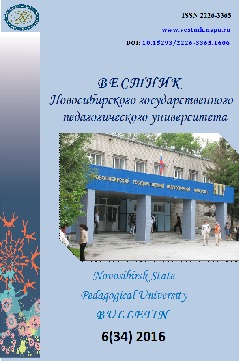Гендерные стереотипы и русская лексикография
Gender stereotypes and Russian lexicography
Author(s): Valerii Anatolievich EfremovSubject(s): Lexis, Historical Linguistics, Cognitive linguistics, Computational linguistics
Published by: Новосибирский государственный педагогический университет
Keywords: Stereotype; conceptualization; gender stereotype; lexicography; words muzhik and baba
Summary/Abstract: The article is devoted to different ways of gender linguistic analysis of a vocabulary entry that is directed to find gender stereotypes and asymmetries in it. The target goal of the research is to reveal different means of direct or indirect transmission of elements, which conceptualize gender aspects of the linguistic view of the world in the lexicographic text as a culture translator. In the course of the analysis supported by modern social cognition and gender stereotypes theories miscellaneous ways of stereotypes’ functioning in the lexicographic texts are identified. The stereotypes might appear in the field of label system, supporting data, word selection, or explanatory tradition. The comparative lexicographic analysis of мужик (muzhik) and баба (baba) in basic Russian dictionaries of 18th – 21st centuries provides gender stereotypes of the Russian linguoculture consideration in diachronic aspect. The analysis of changes in filiation, semantization or stylistical marking of some ethnospecific basic concept ‘man’ and ‘woman’ verbalizers’ meanings allows to see transformation along with preservation of beliefs on the gender organization of the Russian society. In conclusion, lexicographers do not always perceive gender stereotypes, which used to characterize previous centuries and reveal worldview of a different society according to its gender roles structure, because of this or that tradition in explanation of basic cultural words and the linguistic view of the world. The underlying reasons for preserving these stereotypes are as follows: firstly, it is incongruity of cognitive and linguistic views of the world, secondly, it is dialectic nature of correlation between constants and transformations in the language.
Journal: Вестник Новосибирского государственного педагогического университета
- Issue Year: 6/2016
- Issue No: 6
- Page Range: 100-111
- Page Count: 12
- Language: Russian

